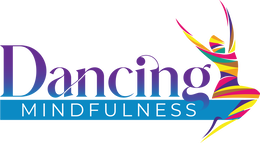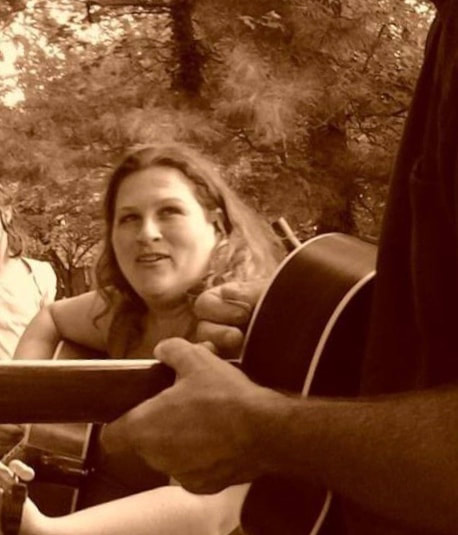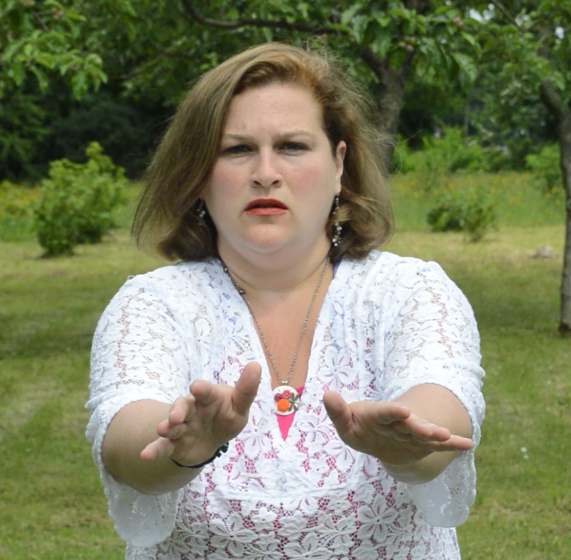Did I Just Write a Song?: Expressive Arts and My Recovery Journey by Dr. Jamie (Pragya) Marich8/20/2019 Originally published on InTheRooms, May 2019
During my first attempt at recovery, I learned to play the guitar. At the time, I worked for a Catholic Parish and aid organization in post-war Bosnia-Hercegovina. There was a kind Irish priest (and former rock n’ roller) also in residence who knew that I liked to sing. However, the only instrument I played, the violin, didn’t lend itself well to accompaniment. So he very patiently taught me the art of making chords and strumming. I found that when I was bored in those early days of figuring out what to do with myself, practicing the chords and the necessary movements to move between them more fluidly kept me busy. Then one day, the chord progression I was working on provided me a back drop to create a tune. Led by that tune, I started singing the angst of my heart and calling out to my Higher Power, desperate for a deeper spiritual awakening. Did I just write a song? Playing music and writing music was a lifeline for me in my first few years of sobriety. I ended up taking my last drink less than a year after I stumbled upon what it meant to compose music that is deeply meaningful to my personal journey. Always a lover of reading and writing poetry, the thought of composing a song always felt impossibly complicated. Yet through my trial-and-error, coupled with some experimentation, I discovered just how accessible writing songs was for me as a form of expression. In the field of expressive arts therapy, we call this being in process. In other words, not having a fixed or forced outcome in mind. Rather, we set an intention to express and to explore, learning from our mistakes along the way. Being in process like this teaches us lessons we may have never dreamed possible. In the field of expressive arts therapy, we encourage clients and people in the community to keep an open mind to exploring all forms of creativity and expression—music, dance/movement, writing, visual art, dramatics, you name it! We embrace an all-of-the-above approach. So while the creative form that may feel most accessible to you can be a great place to start (for me it was music and writing), the practices that feel outside your comfort zone may have the most to teach you. For me, I long believed that the visual arts were my “weak link,” because I was never any good at art in school. Yet when I began deepening my commitment to practicing all of the expressive arts for my own healing and recovering journey, I actually discovered that visual art had the most to teach me. Because I wasn’t focused on it being “good,” I was just able to have fun, be in my body, and learn to not beat myself up for making mistakes. As result, playing with the visual arts in the later years of recovery had just as much to teach me about myself and the healing journey as playing music did in those early days. This all describes the magic that we call process in the world of expressive arts. You may have noticed that the title of my latest book Process Not Perfection: Expressive Arts Solutions in Trauma Recovery takes a twist on the recovery slogan “progress not perfection.” For me, both the power of process in expressive arts therapy and this wisdom at this slogan are trying to teach us the same thing—don’t force outcome. Learn from the process and the journey. In early 2017 as I begin stirring with ideas for bringing this book into existence, this poem came out of me that ended up revealing the title: In Process Works of art in gestation Are often called Works in progress The slogans and inspirational Clichés call for Progress not perfection We judge students and employees With the metric of a Progress report What if we were to change Every use of the work "progress" With the word "process"? What if works of art in Gestation are called Works in process? What if we encouraged People to focus on Process not perfection? What if our metrics of Evaluation took on the tone of Process report? What if we were to live our lives in process? All life could transform Into a journey of art making, Fueled by the expressive spirit We could refrain from Judging ourselves so harshly And instead savor the unknown From the unknown and yes, Even from our mistakes We can discover a new way of being From what we once labeled failures We may unearth a new solution, A new way to solve a problem By creating in the moment and Not forcing the big picture May we encounter the essence of meaning. If you are looking for meaningful ways to bring expressive practices into your recovery journey, please consider checking out Process Not Perfection. It is written for the general public in a voice that I hope allows you to feel safe enough to take this journey with me. I also have several opportunities where you can connect with a growing community of folks in recovery who also practice the expressive arts, specifically the Dancing Mindfulness and Expressive Arts Community Forum on Facebook. You are also welcome to visit my complimentary resources website at www.traumamadesimple.com for a wide selection of meditation, yoga, and other skill videos linked from my YouTube channel. And if you explore that YouTube channel (Jamie Marich) long enough (and go back far enough), you can also find some footage of me playing music!
1 Comment
I wrote Journey Blind in 2007 after a horrible break up and uncertainty about where life would take me next. Since then, this song has become a refuge of faith for me during any difficult passage or season. It was a great pleasure for me to be able to put together a guided dance to this piece while I was on a pilgrimage in Bingen, Germany following the steps and the work of St. Hildegard. Please feel free to engage in the dance at whatever pace works for you today. Much thanks to Betsey Beckman of The Dancing Word and Mary Beth Alberts for their assistance in putting this video together.
|
Dr. Jamie MarichCurator of the Dancing Mindfulness expressive arts blog: a celebration of mindfully-inspired, multi-modal creativity Archives
September 2022
Categories
All
|
Contact |
Memberships & Affiliations |
|
Please direct all inquiries to:
[email protected] © Mindful Ohio & The Institute for Creative Mindfulness, 2021 Terms of Use Privacy Policy |
Dancing Mindfulness/The Institute for Creative Mindfulness is an organizational member of the International Association of Expressive Arts Therapists, the Dance First Association, and NALGAP: The Association of Gay, Lesbian, Bisexual, Transgender, Addiction Professionals and Their Allies; Dancing Mindfulness proudly partners with The Breathe Network and Y12SR: The Yoga of 12-Step Recovery in our shared missions.
|



 RSS Feed
RSS Feed